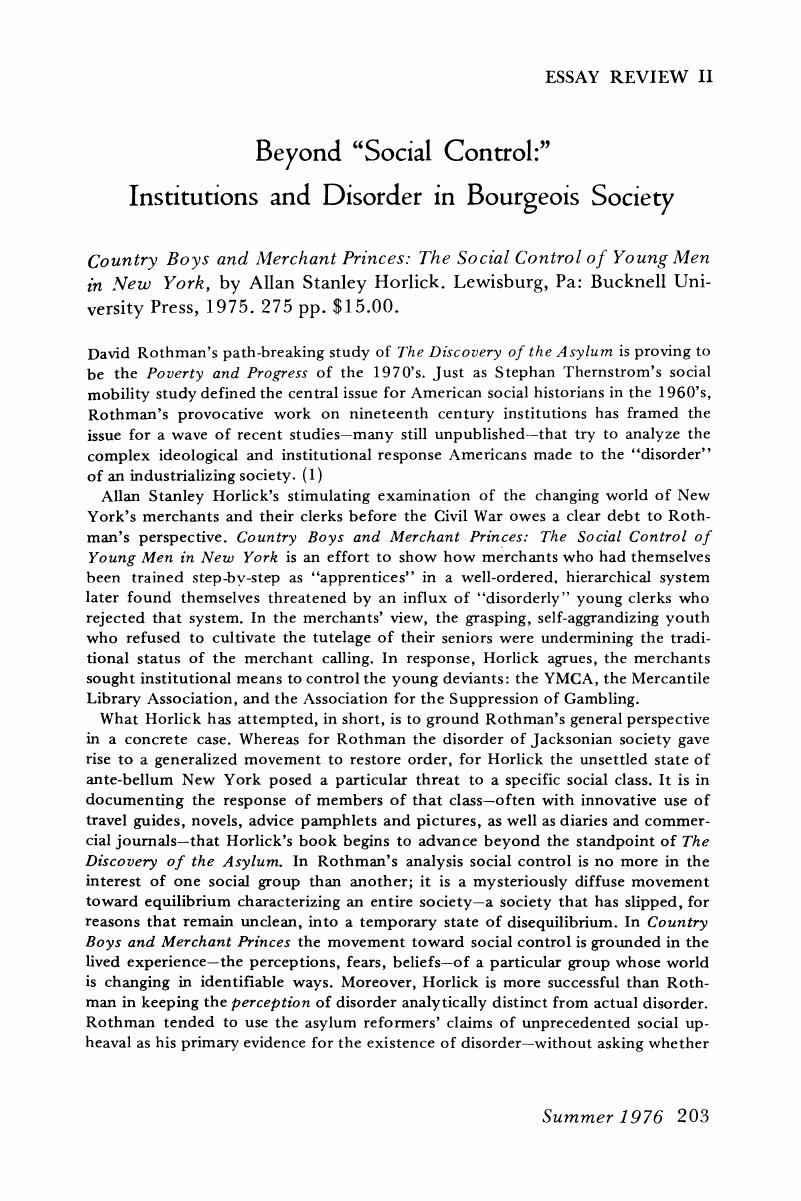Published online by Cambridge University Press: 24 February 2017

1. Katz's, Michael influential The Irony of Early School Reform (Cambridge, Mass., 1968), which argued eloquently for the social control viewpoint, also influenced much subsequent research—including no doubt that of Rothman himself. Yet the effects of Katz's work have been felt more intensely within the confines of educational history; Rothman's more general argument about nineteenth century institutions for the management of several forms of “deviance” has sparked a more general response.Google Scholar
2. Rothman, David, The Discovery of the Asylum (Boston, 1971), pp. 38–41. On the extent of transiency in colonial America, and institutional efforts to control transient deviants, see Jones, Douglas, “The Strolling Poor: Transiency in Eighteenth-Century Massachusetts,” Journal of Social History 8 (Spring, 1975): 28–54.CrossRefGoogle Scholar
3. Lasch, , “Origins of the Asylum,” in his The World of Nations (New York, 1973), p. 17. Foucault, , Madness and Civilization (New York, 1965), p. 71: “Confinement was an institutional creation peculiar to the seventeenth century. It acquired from the first an importance that left it no rapport with imprisonment as practiced in the Middle Ages … It marked a decisive event: the moment when madness was perceived … [as] incapacity for work.” Google Scholar
4. See, for example, Mohl, Raymond A., “Povery in the Cities,” in Mohl, and Richardson, James F., eds., The Urban Experience (Belmont, California, 1973), pp. 102–104.Google Scholar
5. Pessen, Edward, Riches, Class, and Power Before the Civil War (Lexington, Mass., 1973) and Jaher, Frederic Cople, “Nineteenth-Century Elites in Boston and New York,” Journal of Social History 6 (Fall, 1972): 32–77.CrossRefGoogle Scholar